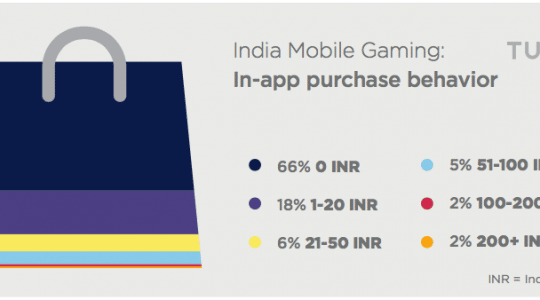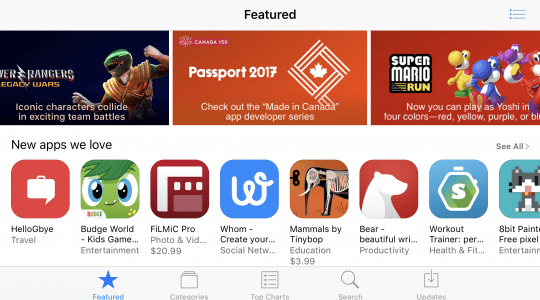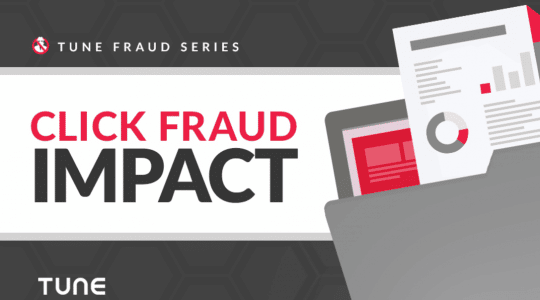In this installment of App Marketing Conversations, our CEO, Ian Sefferman (@iseff) discusses the pros and cons of providing free or paid software, and how that relates to providing free or paid apps. He is joined by Ryan Morel (@ryanmorel) of Gamehouse (@ghpartners) and Robi Ganguly (@rganguly) of Apptentive (@apptentive).
Transcription
Ian: Welcome everyone to another installment of ‘App Marketing Conversations.’ As always I’m here with Ryan Morell of Game House, Robi Ganguly of Aptentive, and I’m Ian Sefferman of MobileDevHQ. So recently we’ve seen Apple announce quite a few things where they’re basically giving away software. They announced, I think back in, it was June, I believe, when they announced that Keynote and iWork were all going free. So Keynote on the iPhone and even Pages is free on the iPad. And more recently last week when they announced Mavericks was available, that OSX Mavericks was available, that that upgrade would also be free. And so they’re essentially taking all of the pricing out of the majority of their software. And so, first of all, what’s the gut reaction to this move, why do you think Apple is doing it, what does it serve for them?
Ryan: Well I think, my guess is they’re doing it just because they can. And the actual revenue outside from Mavericks and their, kind of their incremental OSX releases don’t really… it doesn’t really drive all that much and they probably feel like they get more brand value and consumer loyalty value by just saying, “Here we’ve spent all this time making this great product for free for you.” And they’re further drawing a line in the sand that says, “We’re going to differentiate ourselves based on design and user experience and that’s it.” And you’re going to pay for our hardware and that’s it.
Ian: What do you think?
Robi: So I think that if the iPhone hadn’t happened this would never have happened. But because the iPhone early on, I don’t know if anybody remembers the arcane details of accounting, but early on they had to really go to Wall Street and change how they were accounting for iPhone sales because they were providing software updates to all of the carriers who at… well at that time it was only AT&T and a couple other carriers. So they had to change all their accounting around it. And that was because they realized they can’t charge for updates around this. It’s with the phone. And so that has been something that permeated through their internal culture and if they look at it as a line item, OS X revenue is to minimus, right? They’re not shipping nearly as many MacBook Airs and MacBooks as they are iPhones.
Ian: Yeah.
Robi: So they’re like, “Well, okay, that model works. It’s what consumers are craving, it’s totally convenient for us, let’s do it.”
Ryan: Yeah. The other point, and I’ve heard this multiple times is that Steve Jobs always believed software should be free. You’ve probably heard this and so now you see kind of this continuing trend and it’s absolutely impacted the app store. Right? So and I don’t know if that was their intention to always drive things toward being free versus just the natural cycle of the market but it’s pretty much like once you buy one of their devices everything else is free.
Ian: The flip side to this Amazon. Where Jeff Besos essentially says that hardware should be free. You should only pay me when you use my hardware. So you mentioned earlier that this essentially sets them up on a direct collision course of; should hardware be free or should software be free?
Robi: Yeah.
Ian: Which way do you buy into more?
Robi: Well I mean, I think that the market segments itself. So Amazon is really focused on lowest price possible for customers. And Apple is very focused on premium customers and good margins on the hardware. So it sort of segments. I think the majority sort of ends up being in the Amazon camp.
That seems to me like the long-term way that this plays out and it feels like Android’s already the canary in the coal mine there.
Ian: Do you agree or disagree?
Ryan: I agree from a shared numbers perspective but I’m not sure there’s any money in the low end. Android is how much bigger than iOS at this point and there still 20 to 30 percent of the revenue of iOS. So I think there’s some percentage of the market is going to be interested in Apple devices, because they’ll care about the hardware and the experience and the design and all of that intangible stuff. And those are the people that are likely to spend the most money. And then some are just going to want something that’s kind of a throwaway device. and may use it for the web. The numbers we keep coming back to and seeing is that, iPads represent less than 50 percent of tablet sales at this point but it’s 80 percent plus of web usage. So what is going, what are those things being used for? I think it’s a valid question as you project the market moving forward.
Ian: So let’s take this and distill it down to if you’re an app marketer, how do you use this to shape the way you’re thinking about the world.
Robi: Well I think that you, we’ve hit this drum a bunch, right? If you haven’t embraced free-to-play, if you are still thinking about selling your software your value proposition just got a little bit tougher to make. When Apple is saying with it’s whole suite of software that it’s essentially free. I know it’s not free, but consumers don’t care. You have to really raise the bar on what you’re providing to charge for it. On the flip side if you embrace that, you’re clearly going the direction that Apple is, hopefully they’ll start to embrace more tools for you and just continue to understand that your value is long-term relationships with your customers.
Ian: Which, I think I know a tool that can help you with that.
[laughter]Robi: I might be biased.
Ian: Anything else?
Ryan: I think I’d reiterate the same thing. I mean, I think the argument that paid software is dying is mostly true, but there’s still opportunities for people to make money there, it just gets a lot harder. Because you have to identify your niche and you have to figure out how to market to that niche and convince them to pay. Just make it free.
Ian: All right, cool. Thanks everybody. Be sure to watch the other installments, ‘like’ this video on YouTube, subscribe to our channel, and see you soon.
Author
Becky is the Senior Content Marketing Manager at TUNE. Before TUNE, she led a variety of marketing and communications projects at San Francisco startups. Becky received her bachelor's degree in English from Wake Forest University. After living nearly a decade in San Francisco and Seattle, she has returned to her home of Charleston, SC, where you can find her enjoying the sun and salt water with her family.




Leave a Reply
You must be logged in to post a comment.